Lyon Farm Opens To Public Tours
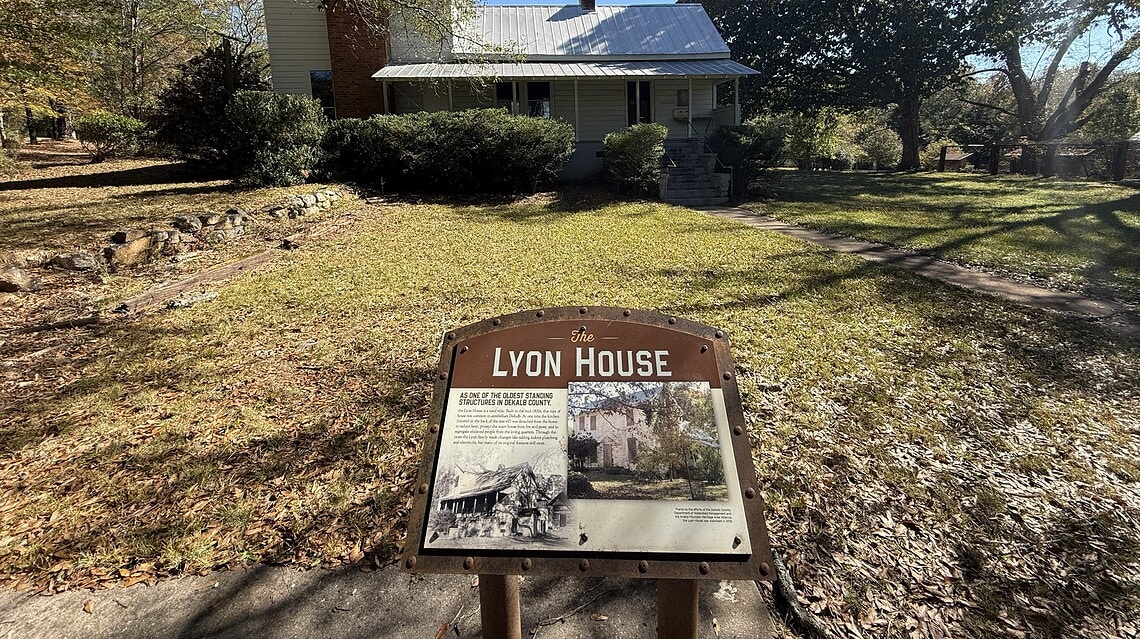
Since the Arabia Alliance hosted a Celebration back in August, there’s been demand for public tours of DeKalb’s only extant plantation home. This month, those tours start.
Beginning November 15th, guided tours of Lyon Farm will open to the public, centered on the theme of “foundations.” The interpretation does not romanticize beginnings; it acknowledges Indigenous presence before forced removal, examines settler occupation, and confronts the role of enslaved labor in shaping this farm. These tours offered by the Arabia Alliance are not designed to transform Lyon Farm into a comfortable attraction. Instead, they offer context, presence, and guided witness, an invitation to stand in a place where history happened and to recognize the labor that built it. Here’s what to expect on the tour.
History Rising
Just off the Arabia Mountain PATH System, Lyon Farm waits quietly at the end of Lyons Road, a narrow dead-end street. Modest way-finding signs guide you in, and the final approach happens on foot. There’s no formal parking lot, no visitor center, no curated welcome. Suburban life sits just beyond the trees, but here, the hum fades and history rises. You can also arrive by walking the Arabia Mountain trail along the South River, a peaceful entry that sharpens the contrast when the landscape shifts beneath your feet. This is not a site built for nostalgia; it is a place that asks you to pause and witness.
The Lyon family, White settlers arriving in the 1820s, claimed this land during a wave of expansion into Muskogee (or Creek) territory. Joseph Emmanuel Lyon built the first cabin, and generations of Lyon descendants farmed here until the early 2000s. Their story is often framed as rural perseverance, but the truth runs deeper. From the beginning, this farm relied on enslaved men, women, and children whose forced labor made the land productive and sustained daily life. Many of their names were never recorded, a silence not of absence but of erasure, a system that denied identity even as lives and labor shaped this place.
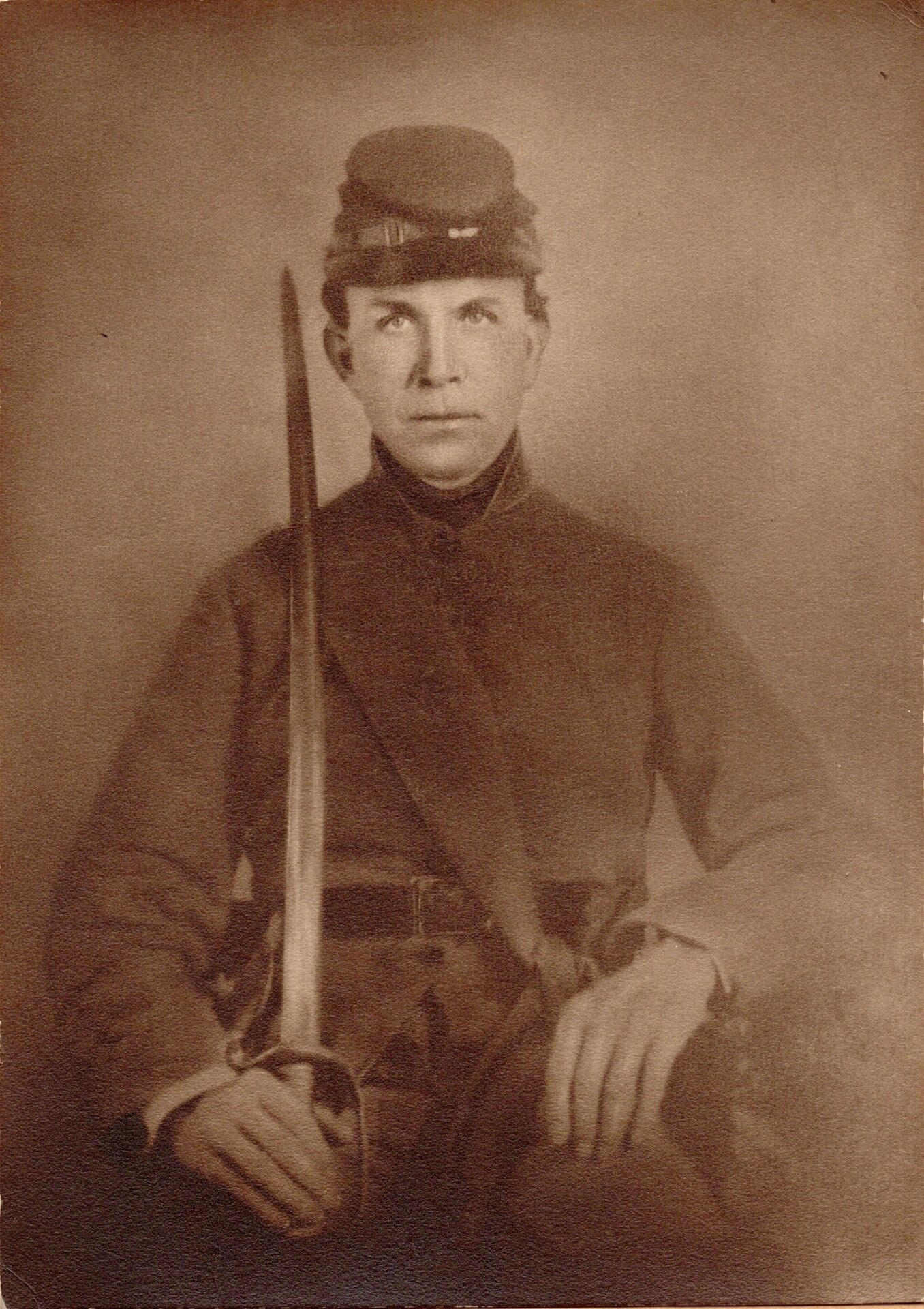
George Lyon, great grandson of Joseph Emmanuel Lyon, fought as a private for the Confederacy during the Civil War. (Penny Thomas)
Echoes Of The Past
The landscape still holds those echoes. The farmhouse, one of the oldest standing in DeKalb County, faces a yard where a detached kitchen once stood, smoke rising day after day from work that never ceased. Nearby sit the remains of a smokehouse and agricultural outbuildings, structures that supported long days in fields once planted with cotton, apples, muscadines, pears, and sorghum. These crops did not flourish through soil alone, but through forced knowledge, skill, and endurance. The land bears the imprint of hands that coaxed life from it under bondage.
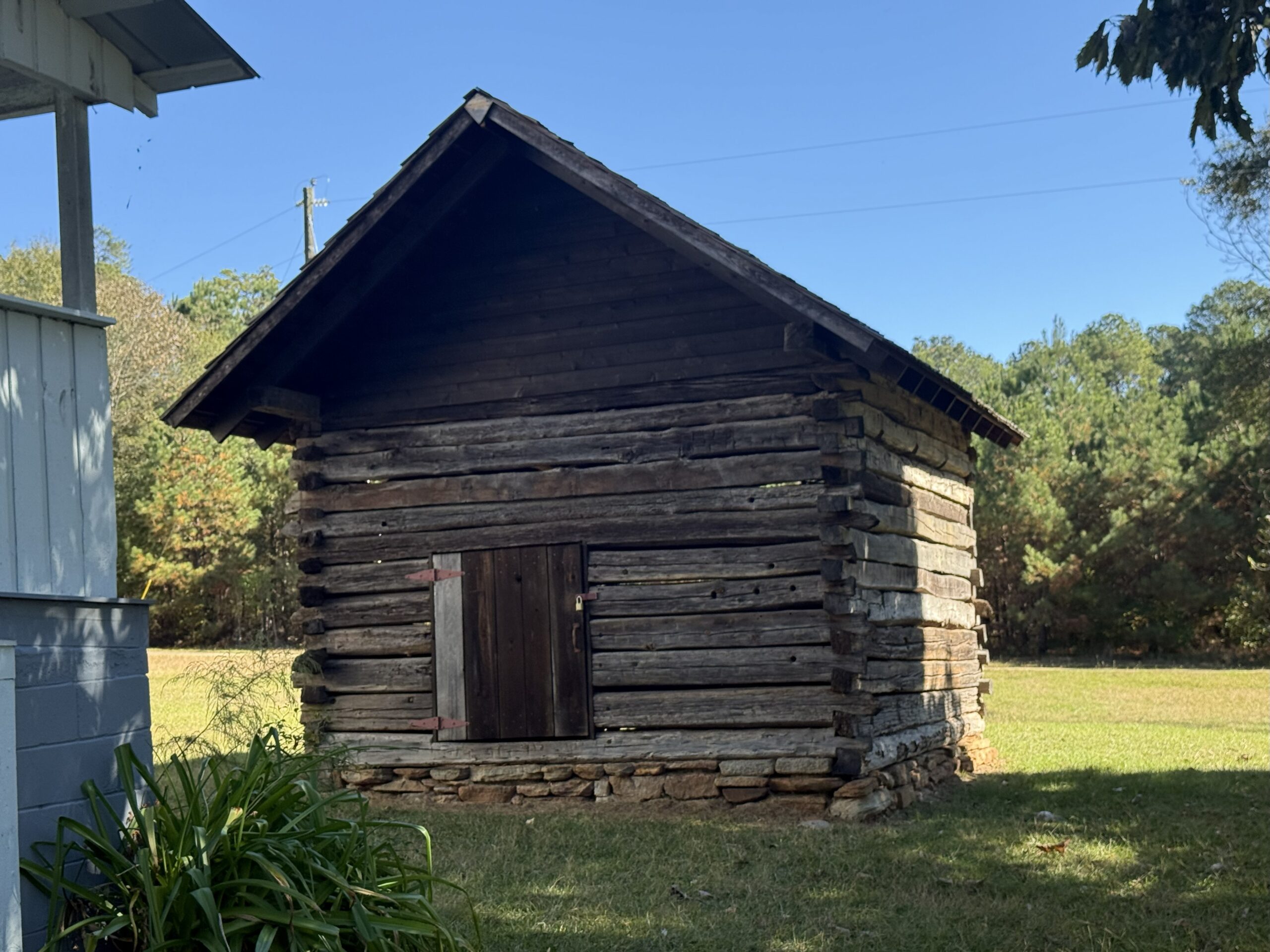
The smokehouse at Lyon Farm is one of the oldest structures in the Metro Area. (Brittany Sessions)
Walking the grounds, it is not hard to imagine the motion that once filled this space: footsteps between house and kitchen, voices calling across the yard, routines unfolding from sunup to sundown without rest or choice. The structures do not simply stand; they remember. And the land remembers too. Interpretive markers now help visitors enter that memory. The 1860 U.S. Census Slave Schedule records seventeen enslaved individuals tied to the property listed only by age and sex. A record intended as inventory, not humanity. That absence speaks louder than a list of names, a reminder that erasure was built into the system itself.
In freedom, some of those once enslaved on this land claimed the Lyon name and made it their own, adding an ‘S’ to signal a new beginning, a name chosen, not given. It was an act of quiet power, a way to define themselves beyond the boundaries of enslavement and to root their new lives in self-determination. Hill Lyons, who was only one year old during the 1860 Slave Census, was among these individuals. He would go on to become a founding member of the Flat Rock AME Church.
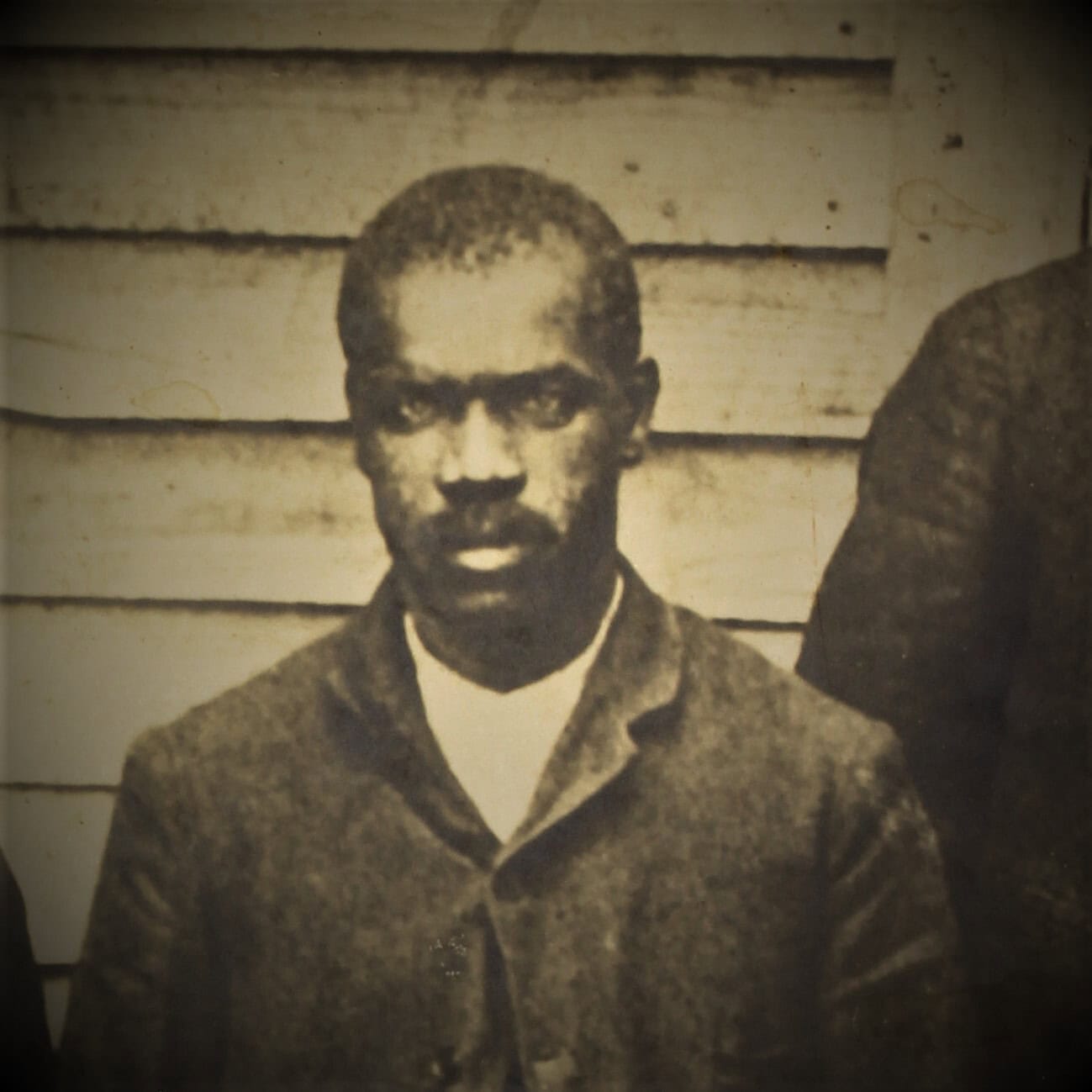
Hill Lyons was born enslaved at Lyon Farm but later became an integral member of the free Flat Rock community.
Lyon Farm Today
After emancipation, farming shifted to cattle, hay, and corn, and eventually to machinery. But longevity should not be mistaken for purity. The farm’s endurance rests on a foundation of coerced labor, and later agricultural evolution does not soften that truth. Some formerly enslaved people remained in the region after they were emancipated, building lives beyond this land. Their names in historical records are scarce, yet their presence is felt in community roots, in memory held beyond paper, and in the insistence that their story not disappear.
Some historic sites aspire to be admired. Lyon Farm asks to be understood and for those who sustained it to be remembered as its true foundation.
Step into the history yourself. Tours begin on the 15th of this month. Click here to book one now.
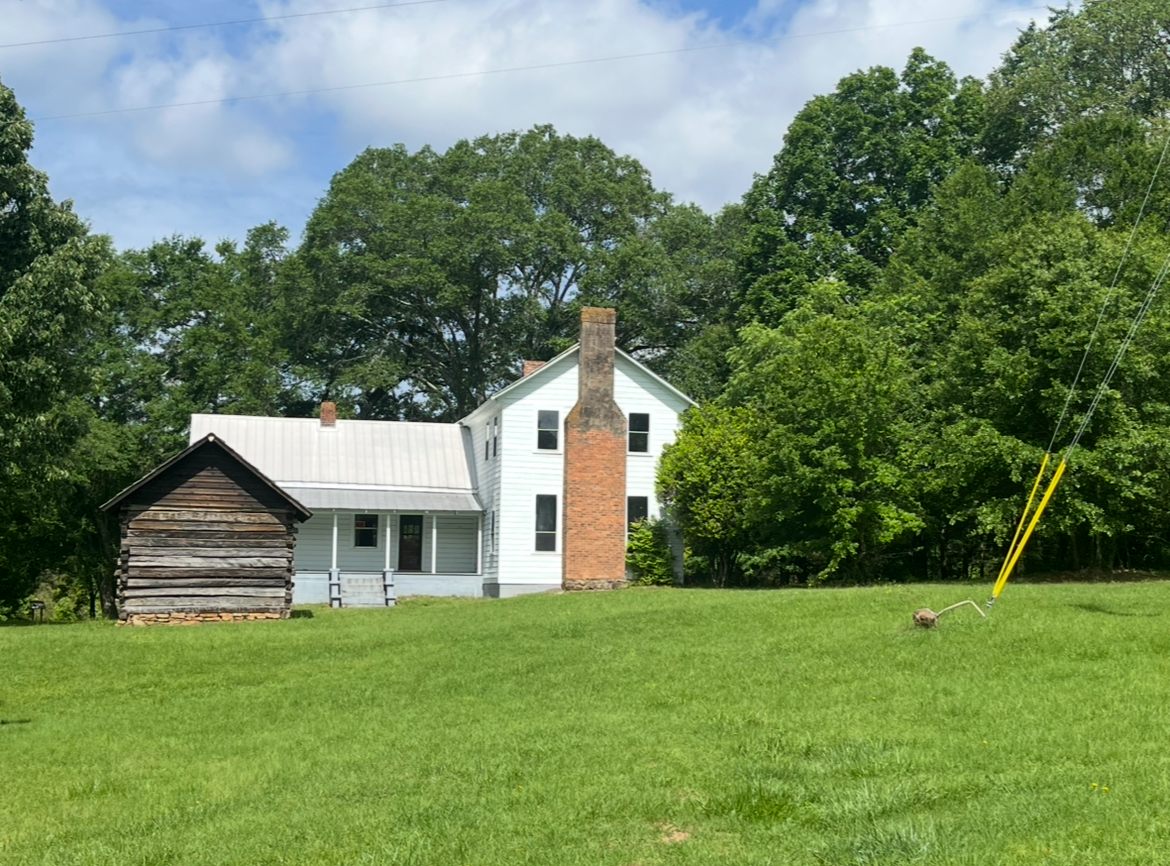
Lyon Farm, with the smokehouse in front, has become a heritage destination in DeKalb.